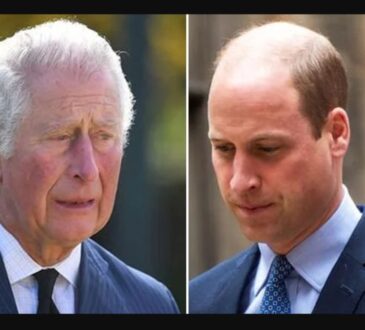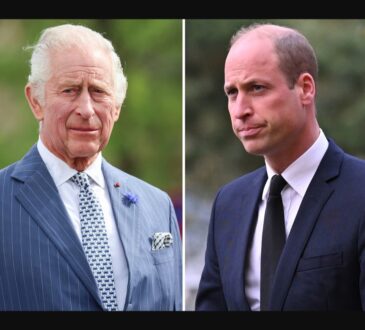Meghan Markle’s secret: Why she never wanted to expose the ‘royal racists’ in Scobie’s book

The fallout from Meghan Markle and Prince Harry’s interview with Oprah Winfrey continues to reverberate as a new chapter unfolds in the form of a reported row between the Duchess and author Omid Scobie. Recent revelations suggest that Meghan Markle, following the controversial interview, exchanged private letters with King Charles, expressing her sentiments on the unfolding events. However, the Duchess allegedly never intended for these letters to be made public, sparking an escalation in the ongoing Scobie row.

In the aftermath of the Oprah Winfrey interview, which sent shockwaves through the royal establishment, Meghan Markle sought to communicate her thoughts and feelings directly to King Charles. The private exchange of letters was intended to be a candid and personal reflection on the events surrounding the interview and the subsequent media scrutiny faced by the Duke and Duchess of Sussex.
According to a report by Express, The reported revelation that Meghan never wanted the names of the so-called “royal racists” to be publicly disclosed adds a layer of complexity to the unfolding narrative. The interview with Oprah had alluded to instances of racism within the Royal Family, sparking widespread speculation about the individuals involved. Meghan’s purported desire to keep these names private suggests a nuanced approach to addressing sensitive issues within the royal fold.
The ongoing row with Omid Scobie, a well-known royal correspondent and author of the book “Finding Freedom,” adds an additional dimension to Meghan’s desire for privacy. Scobie, who has been a prominent commentator on the Sussexes’ experiences within the Royal Family, has reportedly faced criticism from Meghan for his role in revealing details that she allegedly intended to keep confidential.
The exchange of letters between Meghan and King Charles reflects a private attempt to navigate the complexities of royal life and familial relationships. In the wake of the media storm following the Oprah interview, Meghan sought a direct line of communication with the monarchy, expressing her concerns and emotions in what she likely considered a more personal and confidential manner.
The revelation that Meghan never wanted the names of individuals involved in the alleged racist incidents to be disclosed raises questions about the delicate balance between transparency and privacy. While the Duchess has been vocal about her experiences within the Royal Family, there appears to be a nuanced approach to handling certain aspects of these revelations, especially when it comes to naming specific individuals.
The escalating row with Omid Scobie highlights the challenges faced by authors and journalists who navigate the intricacies of royal reporting. Scobie’s insights into the Sussexes’ experiences have provided a unique perspective, but the recent criticism from Meghan underscores the potential pitfalls of navigating such sensitive and private matters.
The private exchange of letters, while an attempt at a direct and personal conversation with King Charles, has now become part of the ongoing narrative surrounding the Sussexes. The revelation that Meghan never intended for these letters to be made public adds a layer of complexity to the evolving discussion about the boundaries between public and private life for members of the Royal Family.
As the row with Scobie escalates, it prompts a broader conversation about the responsibilities of authors and journalists in reporting on royal affairs. The delicate dance between providing insights into the lives of public figures and respecting their privacy is a constant challenge, particularly in an era where the boundaries between public and private spheres are increasingly blurred.



